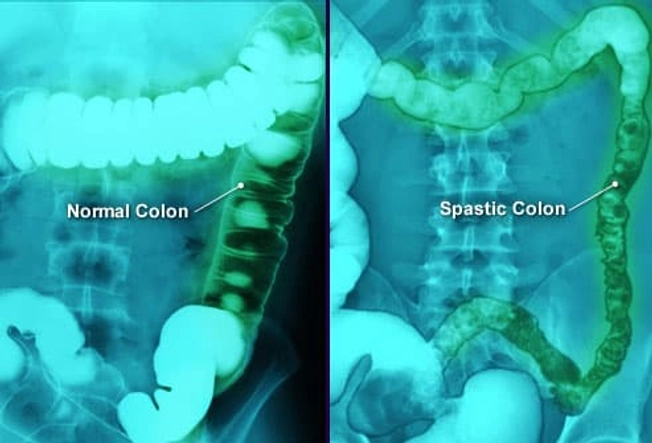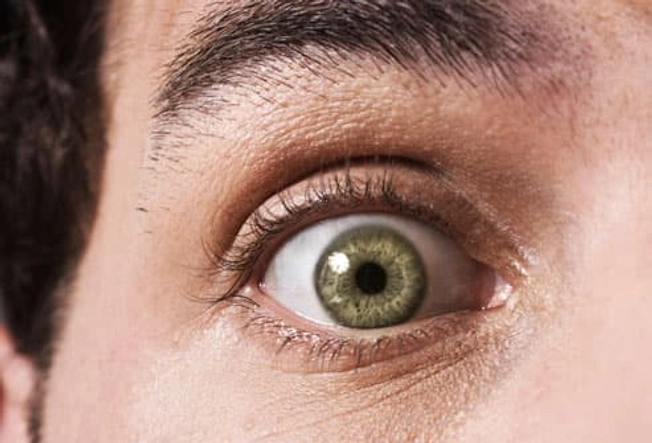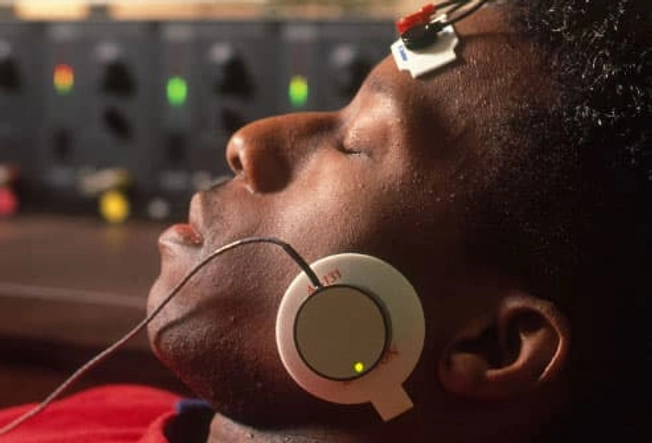A Visual Guide to Understanding IBS


What Is Irritable Bowel Syndrome?
Many people have digestive troubles once in a while. Irritable bowel syndrome (IBS) is different, though. What sets it apart is belly pain and diarrhea or constipation that comes back again and again. But there are no signs of damage in the gastrointestinal (GI) system. And it doesn't make you more likely to get colon cancer.

What It Feels Like
The main symptoms of IBS are belly pain along with a change in bowel habits. This can include constipation, diarrhea, or both. You may get cramps in your belly or feel like your bowel movement isn’t finished. Many people who have it feel gassy and notice that their abdomen is bloated. Persistent pain and frequent trips to the bathroom can make everyday life harder. In women, the symptoms are more common during their menstrual period.

What Are the Causes?
Doctors don't know yet. One theory is that the signals between the brain and intestines get disrupted. This miscommunication may trigger contractions in the intestinal muscles (seen on the right) that result in cramping, pain, and changes in the speed of digestion. Or it may be that the intestinal nerves are extra-sensitive to certain triggers, such as some foods or stress.

Who Gets It?
Anyone can get irritable bowel syndrome, but the condition is twice as common in women as in men. It's also more likely to affect people who have a family history of IBS. Symptoms usually start before you're 35 years old. It's uncommon for people over 50 to get IBS for the first time.

How It's Diagnosed
There is no single test to check for IBS. Doctors usually make a diagnosis based on a person’s description of the symptoms. When you tell your doctor what’s going on, be specific with them and don’t be shy about it. They may order tests to rule out other causes of your symptoms.

How It Affects Your Life
It’s uncomfortable, and it can make you feel anxious about being able to get to a bathroom on time, or nervous about having symptoms strike at a bad time, like when you’re commuting, at work, or in any situation where it’s hard to leave. You may find that it helps to map out bathrooms before going anyplace new. In severe cases, people feel hesitant to eat out, see a movie, or socialize.

The Role of Stress
Everyone gets nervous -- like when you have an exam, or have to give a presentation, or are under pressure. For people with IBS, that may trigger or worsen their symptoms. So, it's very important to take charge of your stress. It can also be a good idea to work with a counselor to learn helpful ways to respond to stressful situations.

What Are Your Triggers?
The first step toward managing IBS is to figure out what makes your symptoms worse. Besides stress, common triggers include eating a meal, hormonal changes, and certain medications. It's important to note that no specific foods are linked to IBS symptoms for everyone. Each person is different. So, write down what you eat in a "food diary" to help you pinpoint which foods are a problem for you.

Should You Change Your Diet?
Your treatment plan will depend on your specific symptoms and triggers, but many people start with diet changes. It may help to eat smaller meals and foods that are lower in fat. Fiber is good if your IBS includes constipation. You may want to avoid alcohol or caffeine, and foods that make you gassy (such as beans, broccoli, Brussels sprouts, and cabbage). Also, notice if lactose (found in in dairy) makes your symptoms worse.

Do Probiotics Help?
These “good” bacteria live in your gut. There are many kinds of probiotics, and the best known is the type found in yogurt -- look for a label that says "active cultures." Some studies show that certain probiotics -- Bifidobacteria and some probiotic combinations -- may help with IBS symptoms.

IBS and Exercise
Even though you may not feel like exercising, especially when your symptoms flare up, it’s still good for you. Physical activity can help with digestion, reduce stress, and improve your mood.Go for low-impact activities at first that won't jar the digestive tract, and use the bathroom before you start.

Drugs That Treat Diarrhea
If diarrhea is one of your IBS symptoms, there are medicines to help. They include loperamide (Imodium) which slows the motion in the intestines. Your doctor may also consider prescription drugs like eluxadoline (Viberzi), or an antibiotic called rifaximin (Xifaxan), or “bile acid sequestrants” (such as cholestyramine, colesevelam, and colestipol) for more help.

Drugs for Constipation
Your doctor may recommend an over-the-counter medicine that softens stool so it’s easier to pass (like docusate), a fiber supplement (such as methylcellulose or psyllium), or polyethylene glycol (PEG).
If other options don’t work, the drugs linaclotide (Linzess) and lubiprostone (Amitiza) boost the amount of fluid in your intestines.

Antidepressants and Antispasmodics
If a doctor prescribes antidepressants for IBS, that doesn't suggest your symptoms are "all in your head" or caused by depression. Antidepressants act on the chemical messengers in the digestive tract and can ward off pain and cramping. Antispasmodics may also be useful if cramping is a major symptom. Most medications have side effects, so discuss the pros and cons with your doctor.

Does Peppermint Oil Work?
It's worth a try if you prefer a natural remedy. Some studies suggest it may ease IBS symptoms. Look for enteric-coated capsules, which are less likely to cause heartburn -- and check with your doctor first if you take other medications.

Psychotherapy Can Help
If IBS gets to you -- like, if you start to feel down about it or avoid social situations because of it -- you might find it helpful to talk with a counselor, at least a few times. They can help you with the stress of the condition and teach you new ways to manage your triggers and flare-ups.

Hypnosis
An expert will guide you through this technique, helping you learn how to relax your colon’s muscles. It may help with IBS symptoms. Doctors call this “gut-directed hypnotherapy.” Some studies back it up, but the research isn’t complete yet.

Biofeedback
This can teach you to recognize and change your body's response to stress. It might help you learn to relax certain muscles in your pelvic “floor” when you have a bowel movement, if your IBS constipation happens because you squeeze those muscles without realizing it.

Make Time for Mindfulness
Consider trying meditation, deep breathing, or other relaxation techniques. There’s not a lot of research on the topic, but if it helps you manage stress, it’s a good idea to give it a shot and see how you do.

IBS: Long-Term Prognosis
Irritable bowel syndrome is an ongoing (chronic) condition. Your symptoms may calm down for periods of time and then flare up. Keep a personal diary of food, feelings, and symptoms -- that can help you uncover hidden triggers when you're first diagnosed, and if IBS begins to interfere with your daily life again. Over time, the symptoms typically do not get worse. IBS is not life-threatening and does not lead to more serious conditions, such as inflammatory bowel disease or cancer.